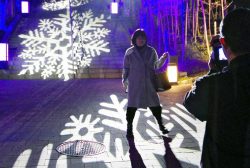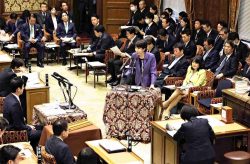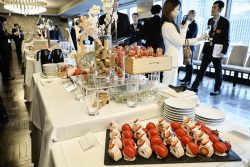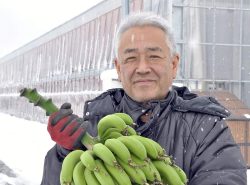13:10 JST, October 3, 2021
Restoring trust in the art business is not easy. The Cultural Affairs Agency and art-world organizations must use a recent incident as an opportunity to build a mechanism to eliminate counterfeit artworks and to prevent a recurrence.
In the case of a large number of counterfeit prints of works by famous artists such as Ikuo Hirayama and Kaii Higashiyama, the Metropolitan Police Department arrested two men, a former art dealer and a representative of a print workshop, on suspicion of violating the Copyright Law.
The two were arrested on suspicion of reproducing seven of Higashiyama’s landscape prints without the permission of the relative who is the copyright holder over a period of about two years until around January 2019. They are alleged to have been selling the fakes at high prices for about 10 years, passing them off as genuine works.
A private appraisal organization has reportedly identified more than 100 fake works in the case. The MPD has also seized counterfeit prints of works by international artists such as Pablo Picasso and Marc Chagall. Utmost efforts must be made to uncover the full extent of the case.
Unlike original paintings, which are one of a kind, many identical prints are in circulation for a single work, making it believed to be difficult to determine their authenticity. Serial numbers and artists’ signatures are used as proof of authenticity, and the original print plates or blocks are disposed of so that they cannot be used to make additional prints.
The fake prints were discovered when an industry group started an investigation because of the unnaturally large number of prints in circulation. They were very elaborately made, and the appraisal organization said that it determined the works were fake due to differences in signatures and paper quality.
In recent years, with the development of digital technology, it has become possible to make more accurate reproductions than ever before. The two suspects are alleged to have uploaded scanned images of original works to computers and analyzed colors using image editing software, before producing the fakes.
It is clear that conventional techniques, such as serial numbers, signatures and the disposal of the original plates or blocks, are no longer enough to prevent forgery.
The effects of the incident are still continuing. Department stores across the country have been forced to recall fake prints and refund the money to the buyers. Many have not been able to resume selling prints even now.
At a major art auction in Japan, genuine works by artists for whom fake prints were found to be in circulation are said to be going for half the price they used to command.
Many prints of unknown authenticity are being traded online. It is necessary to establish a mechanism to determine the authenticity of such artworks as soon as possible. To untangle the confused situation, it is essential to come up with measures to prevent a recurrence, and to notify the public of new measures.
It is said the Cultural Affairs Agency will soon set up a panel of experts to begin discussions on formulating guidelines for appraisal methods.
It would also be effective to use blockchain technology, which decentralizes the management of the transaction history of print works among multiple computers, to issue certificates. A system that can guarantee authenticity is certainly the most important factor in eliminating counterfeit prints.
— The original Japanese article appeared in The Yomiuri Shimbun on Oct. 3, 2021.
Top Articles in Editorial & Columns
-

Riku-Ryu Pair Wins Gold Medal: Their Strong Bond Leads to Major Comeback Victory
-

Reciprocal Tariffs Ruled Illegal: Judiciary Would Not Tolerate President’s High-Handed Approach
-

China Provoked Takaichi into Risky Move of Dissolving House of Representatives, But It’s a Gamble She Just Might Win
-

Japan’s Plan for Investment in U.S.: Aim for Mutual Development by Ensuring Profitability
-

Flu Cases Surging Again: Infection Can Also Be Prevented by Humidifying Indoor Spaces
JN ACCESS RANKING
-

Producer Behind Pop Group XG Arrested for Cocaine Possession
-

Japan PM Takaichi’s Cabinet Resigns en Masse
-

Man Infected with Measles Reportedly Dined at Restaurant in Tokyo Station
-

Israeli Ambassador to Japan Speaks about Japan’s Role in the Reconstruction of Gaza
-

Videos Plagiarized, Reposted with False Subtitles Claiming ‘Ryukyu Belongs to China’; Anti-China False Information Also Posted in Japan





















